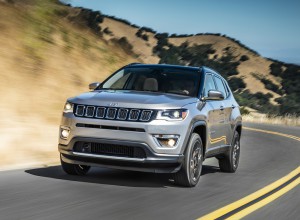Fiat Chrysler Automobile N.V.’s venture in India is now exporting Jeep Compass utes to Japan and Australia where car making ended for good last month.
Sergio Marchionne said recently that the transformation of Jeep to a truly global brand is continuing to pick up momentum. Jeep sales in South America, where FCA opened a plant last year, and in Europe where Jeeps are now built on the continent for the first time, have continued to expand, Marchionne noted during a conference call last month.
Jeep sales in China are also growing. Marchionne also said the Jeep plant in India is also off to a promising start.
The shipment of 600 right-hand drive units of the vehicle was dispatched to the two countries from Mumbai, FCA India said in a release.
(Australia’s last car rolls off Holden production line. For the story, Click Here.)
The Compass was launched in July at FCA’s Ranjangaon plant near Pune.
“We had planned to start shipping the India-made Jeep Compass in the fourth quarter of this calendar year and we are on track. Soon it will be seen on the roads in Australia and Japan, our first two right-hand drive export destinations,” Fiat India Automobiles Pvt Ltd (FIAPL) Chief Executive Officer Gurpratap Boparai said.
The Ranjangaon-produced SUV with more than 65% local content will go to more international markets through the ongoing quarter of 2017, the company said.
(Click Here for more about Toyota ending production in Australia.)
FCA India has invested $280 million in the plant to support local production of Jeep.
Auto plants in Australia have shutting down in recent years, with Ford, Toyota and now Holden, a General Motors subsidiary, closing their manufacturing operations during roughly the last year.
Critics blame the industry’s demise on the refusal in 2013 by the government of Malcom Turnbull to rescue of the country’s automakers as they were battered by a high Australian dollar, high production costs and a shrinking domestic market.
(To see more about other automakers setting up in India, Click Here.)
Union officials representing automakers in Australia have estimated about 30,000 people lost their jobs as a result of the recent closures. In the area north of Adelaide, which has at times had South Australia’s highest unemployment rate and where General Motors’ Holden subsidiary was the largest employer, nearly 1,000 people were left looking for work when GM shut what was Australia last assembly plant last month.



Answers the question, “How can jeep quality get any worse?”
Also answers the question “Why can’t Chrysler cars compete with others…wait, there aren’t any Chrysler cars to compete.”